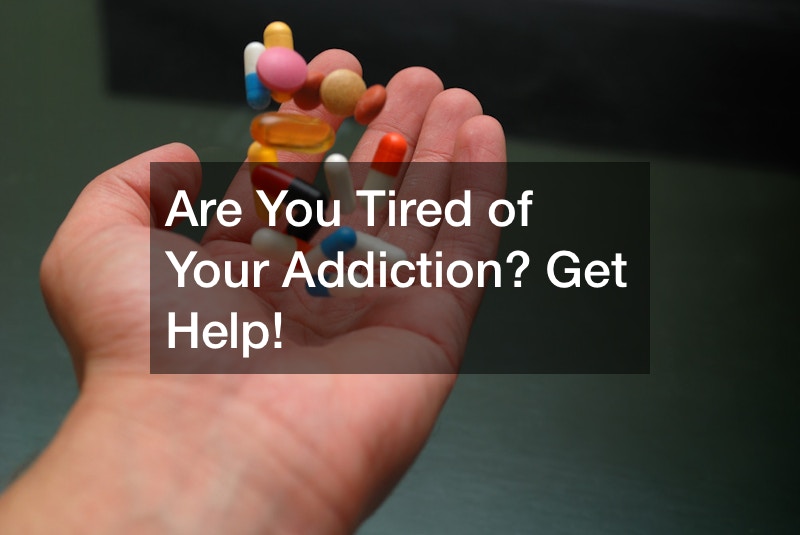
Updated 4/26/23
Addiction can ravage your life and tear your family apart as it will push away the people who care for you. That’s why you need to seek help if you have an issue like addiction. Remember that the first step to getting help is admitting that you have a problem and you’re open to getting help from professionals. This is because it will also take a lot of effort on your part and it may be hard, especially in the beginning. When you have support, however, you’re bound to be able to pull through and kick your habit.

As far as help goes, it includes doctors who prescribe methadone, primary recovery services, and attending road-to-recovery meetings. Find an option that feels right for you or head to a professional center so that you’re given a workable solution. You could find a center like this by searching online. You can enter something like, “Does outpatient rehab drug test help?” You’re sure to find a solution in the results as well as some of the centers that help people dealing with addiction. Look for other people who are in the same predicament as you and try to encourage each other while getting professional help.

Addiction is like a disease, however, this one has as much effect on the brain as to the body. The process of overcoming substance abuse isn’t always easy, in fact, it is very hard considering the grip drug and alcohol has to the body. But it’s possible for victims to get help and bring a stop to this misery in their lives. The decision to end an addiction is purely transformative one, and as soon as a victim seeks help, the sooner he or she will be able to move forward and cope with the healing process.
Victims of addiction will have to be enrolled in specialized programs designed to remove drug dependency and its effects on their body, and one such program is referred to as detoxification. Detox programs mainly occur in a hospital setting, but a patient can seek a residential type of program. Both inpatient and outpatient programs undergo the same program aimed at detoxification
Typically, detox may take 3 to 7 days, or even longer depending on the abused substance and the duration one has abused that substance. Experts say that quitting any substance abuse is as easy as it gets, but now dealing with the after effects, that’s where it poses a great challenge to many addicts. With that in mind, it’s only through drug treatment and other therapies that an addict can gradually wean off the effects of the substance.
Before getting to know about the detox program, you should first understand the immediate effects of ridding the body of drugs and alcohol. Normally, an addict will undergo different phases of withdrawal that can range from mild to severe; And this is actually the crucial stage of detox where victims experience both physical and psychological changes.Below is some of the withdrawal side effect people face during the detox phase:
1.Nausea
2.Mood Lability
3.Sweating
4.Fatigue
5.Tremors
6.Extreme cravings
7.Body aches and constant pains
8.Irritability
9.Anxiety and depression
With most of the above side effect being common, it may differ across addicts. However one of the biggest perks of choosing medical detox programs is the range of intervention it offers. From opiates, depressants to stimulants, addicts are not only assured of proper medication but also constant supervision.
Different forms of addiction will often demand a unique addiction treatment. Case in point, someone suffering from alcohol addiction will let’s say need a different detox treatment from someone undergoing opioid addiction. The later will need to put in ibogaine detox programs while the case of alcohol addiction often makes use of benzodiazepines drugs.
Choosing a medical detox program, here are the basic processes you need to know:
1.Evaluation
Patients will often get evaluate by detox physicians who’ll establish the extent of addiction on a victim and determine the right detox procedure to take.
2.Stabilization
The detox phase of a patient is closely monitored by qualified nurses who ensure at all times that the process is as painless as possible. In addition to physician-prescribed medications, an addict is able to get compassionate care that mainly helps to heal psychological wounds.
3.Treatment
Detox programs entail more than just removing addictive substances from patient’s bodies. The entire program entails counseling and psychological support to a patient completely overcome their addictions.
With this piece of information, the right path to painless detoxification is possible. One thing addicts are encouraged to do is to accept their current situation, and through acceptance, the healing process can now begin.

